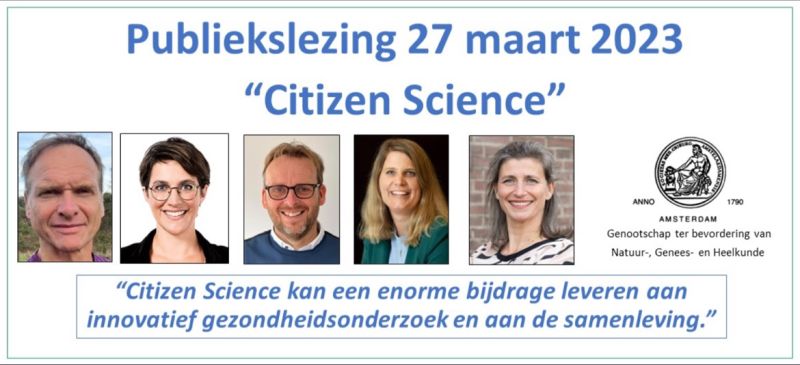Ontsluiten van burgerkennis in gezondheid
Accumulate the experiential knowledge of people with a (rare) disease and/or condition to develop hypotheses that can be investigated.
Are you interested?
We would be happy to tell you more about our approach to supporting citizen science for health.
Based on lived experiences
People with a (rare) disease and/or condition seek a way to make their lives bearable. Each person is unique, and each journey is also unique. Can we accumulate individual insights and potential experiments so that we can make more of them? Often, it is dismissed as anecdotal evidence. Fortunately, we see that there is much more room for narratives other than just the medical perspective. For some diseases and conditions, we developed a structured approach to collectively learn from individual stories and experiments.
Evaluate, learn and improve using stories
Why work with stories?
Reasons to work with stories are: a. Stories help us to understand (experiences of) people and gain a picture of situations. b. In stories, there is a lot of information for building insights and generating rough ideas for change, experiments, and/or initiatives. c. By telling a story, the storyteller reflects on his/her own life and actions, initiating change. d. Stories make visible what remains hidden without them. In organizations, this is referred to as the undercurrent. e. Everyone can tell stories, and no one is excluded. f. Stories are easy to remember and thus powerful in storytelling.
Important condition
An essential prerequisite for this approach is a population willing to share their story. This could be through a (open or closed) Facebook group or an email list. Via a customized online storytelling platform, individuals can share their stories and answer questions about their own experiences and situations. For the work session, it's crucial that specialists who are curious about the life experiences of individuals with that specific disease or condition can and are willing to join. They can explore whether hypothetical research can be initiated at a later stage.
Een casus
EpilepsieNL
De stichting EpilepsieNL (https://www.epilepsie.nl/) besloot ons te benaderen. Grote reden daarvoor was tweeledig: 1. ze kregen veel mailtjes en telefoontjes van mensen met epilespie of familieleden. In die berichten zat veel nuttige informatie waar ze niets mee deden. De vraag was of wij hen konden helpen om die informatie op te werken tot inzichten. 2. periodiek stelden ze een onderzoeksagenda op, de Doorbraak agenda. Die werd samengesteld door specialisten. De wens werd echter steeds groter om de grondvesten en de prioritering van de onderzoeksagenda te laten bepalen door de leefwereld van mensen met epilepsie en/of hun naasten. Een vertelpunt, dashboard en werkwijze werd ontwikkeld om EpilepsieNL hierin te ondersteunen. Medewerkers van EpilespieNL werden opgeleid om hiermee zelf te werken. Ze schreven een artikel over hun werk: https://epilepsiejournal.nl/article/view/13474/15026
Emerging science
An increasing number of individuals and organizations realize that our human body is unique. Unique on the outside (consider fingerprints, iris, vein patterns, etc.) and also unique on the inside. A lifestyle that works for one person with a disease or condition may not necessarily work for another. The same applies to the effectiveness of medications. Of course,, it is possible to scientifically establish general effects of medication. This also holds true for general effects of, for example, a specific diet on living with Alzheimer's. If we don't investigate, unfortunately, we won't know. The research strength lies in individuals and their networks who are "affected" by a disease or condition. They read, study, share knowledge, and often experiment. A group of individuals advocating for self-research has come together in a national platform: Citizen Research Network Netherlands (ZelfOnderzoek Netwerk Nederland - ZONN). Our colleague Marco is affiliated with the national ZONN platform. (https://mdog.nl/wat-is-burgerwetenschap/zelfonderzoek-netwerk-nederland/).

In March 2023, our colleague Marco Koning co-hosted the public lecture of the Society for the Advancement of Nature, Medicine, and Surgery.